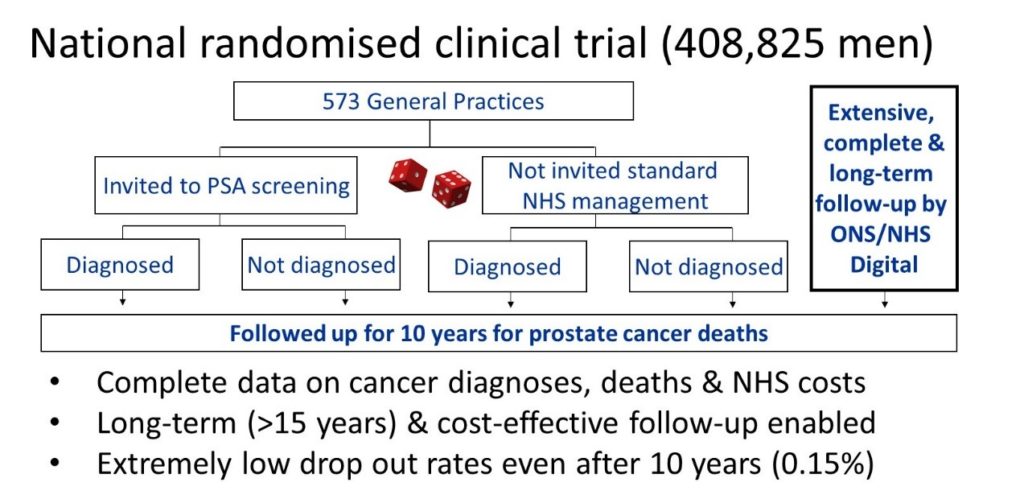About the research
This trial was to determine if a one-off screen with Prostate Specific Antigen (PSA) testing could prevent men from dying of prostate cancer. Emma and her team recruited over 400,000 men and followed them up over an average time of 10-years. The results showed there was little difference in the number of men who died of prostate cancer, with one less death for every 10,000 men screened. Not carrying out needless tests and associated follow up treatments could save an estimated £1 billion a year in NHS costs and help reduce unnecessary harms to men.
Methodology
This Randomised Control Trial (RCT) across 573 doctors’ surgeries of over four hundred thousand men aged between 50-69 was the largest ever trial using NHS Digital and Office for National Statistics (ONS) data. The men were divided into two groups. One group was invited for PSA screening and the control group had no special intervention. Each group contained over 180,000 men, both groups underwent passive surveillance of their NHS data for prostate cancer incidence and costs, and ONS data for mortality. This RCT benefited from an amazingly small dropout rate due to the passive follow up exploiting linkage between participants and information held on them in electronic NHS databases. This led to a dropout over an average time of 10-years of only 0.15%.
Findings
The headline finding of this research is that after an average 10-years of follow-up, the group who had been screened had the same percentage of men dying from prostate cancer as those who had not been screened (0.29%).

Impact
These findings could lead to an estimated saving of up to £1 billion annually to the NHS and help avoid harms to men from unnecessary screening.
Publications
A detailed article about the research and its conclusions is available on the Jama Network.
A video explaining the CAP trial results can be found here.


